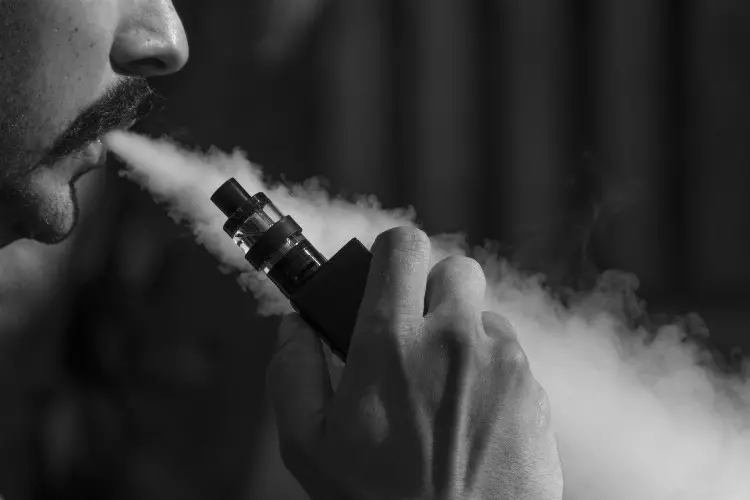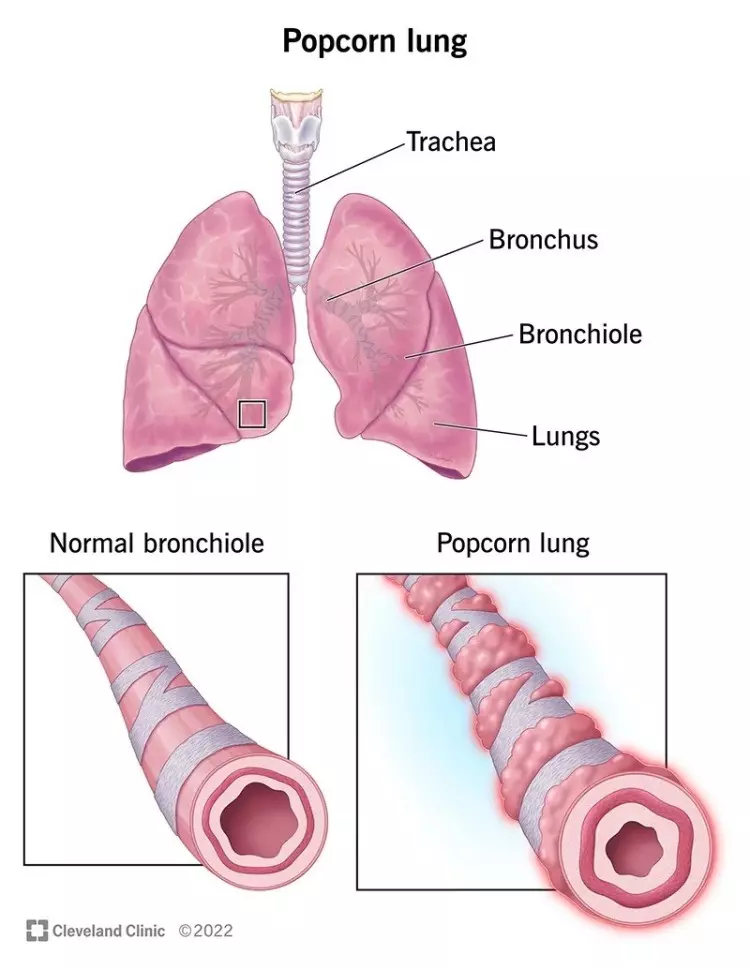
Photo Credit: from Pixabay
The use of Vaping and E cigarettes has become an increasingly popular alternative in recent years, especially among the young. Vaping heats tiny particles of a liquid that are inhaled while E-cigarettes are battery-operated devices that produce aerosol from a nicotine-containing liquid and a heating element. While these options are marketed as a “safer alternative” to traditional cigarettes, they contain harmful chemicals that can damage health.
One of the most concerning effects of vaping is its impact on the lungs, specifically the alveoli. Alveoli are tiny air sacs in the lungs that are responsible for exchanging oxygen and carbon dioxide. When exposed to the chemicals in these devices, the alveoli can become inflamed and damaged, leading to respiratory problems. In this article, we will explore the effects of vaping and e-cigarettes, sometimes referred to as “Juuling” on the lungs and common ways to treat it.
HISTORY Of VAPING
Vaping has a long and complex history that dates back to the early 20th century. The first patent for a nicotine inhaler device was filed in the 1930s, and many more followed throughout the 20th century and early 2000s. However, it wasn't until Chinese inventor Hon Lik invented the modern e-cigarette in 2003 that vaping as we know it today was born. Since then, the industry has grown rapidly, with new products and flavors being introduced every year. Concerns about the safety of vaping have also arisen, particularly in recent years due to a rise in lung issues associated with vaping. Despite this, the popularity of vaping continues to grow, and it remains a controversial topic in public health and regulatory circles.
What’s particularly alarming is that the largest demographic of vaping users is primarily among young people between the ages of 15 and 24. Almost one million young people use e-cigarettes daily, with 1.6 million using them over 20 times monthly, according to the FDA.
EFFECTS ON THE LUNGS
Vaping can potentially have harmful effects on the lungs due to the chemicals that can cause serious and irreversible damage to the alveoli–tiny air sacs that help with the passage of oxygen within the lungs. When e-liquids are heated, they create new chemicals that may not be safe to inhale. The e-cigarette aerosol that users breathe from the device and exhale can contain harmful and potentially harmful substances, including ultrafine particles that can be inhaled deep into the lungs. These substances include compounds in the flavorings such as diacetyl, a chemical linked to a serious lung disease, volatile organic compounds, cancer-causing chemicals, and heavy metals such as nickel, tin, and lead. Over time, vaping can lead to scarring of the alveoli, along with thickening and narrowing of the airways. The heating process can also create chemicals like formaldehyde and other aldehydes that can cause lung disease. Vaping can make asthma and other co-existing lung diseases worse, and breathing in the harmful chemicals from vaping products can cause irreversible lung damage, lung disease, and, in some cases, death.
Vaping can also cause spasm (narrowing) and mucous hypersecretion, which can also lead to respiratory symptoms. A condition called Bronchiolitis Obliterans (Popcorn Lung) can also occur. “Popcorn Lung '' was a name given to this rare condition that led to damage of alveoli in popcorn factory workers which was found to be caused by diacetyl– a food additive used to resemble the butter flavor in microwave popcorn. This additive has also been added to the liquid present in these vaping devices. The problem with popcorn lung is that it doesn’t always produce symptoms early on but it may still be causing damage to the tiny alveoli.

Photo Credit: Bronchiolitis Obliterans (Popcorn Lung), from Cleveland Clinic
SYMPTOMS:
● Early on, possibly no symptoms despite possible lung damage
● Shortness of breath
● Dry cough
● Wheezing
TREATMENT OPTIONS
Nicotine replacement therapy (NRT): NRT can help reduce nicotine cravings and withdrawal symptoms that can occur when someone stops vaping. NRT options include nicotine patches, gum, lozenges, oral inhalers, and nasal sprays such as these nicotine. Sometimes a combination of two nicotine products works more effectively than one alone.
Medications such as Bupropion and Chantix can be used to help control cravings and manage withdrawal symptoms. Counseling/ coaching support: Combining NRT options with coaching support can help increase the chances of successfully quitting vaping.
If you are having any of the above symptoms, or even if you are asymptomatic, it is best to follow up with your primary care doctor or a pulmonologist who can assess the effects of vaping on your lungs with a simple test such as a pulmonary function test (PFT) if indicated.
Unfortunately, some people go on to develop asthma/copd and will need medications such as inhalers to help. Albuterol Flovent Symbicort Arnuity
While vaping has become a popular new trend among teenagers and young adults, it is not necessarily a safer option. Those who were introduced to cigarettes more than 60 years ago were told that cigarettes were also safe….
The American Lung Association has warned that using e-cigarettes causes health risks and contain and emit a number of potentially toxic substances. It is also important to note that the Food and Drug Administration has not found any e-cigarette to be safe and effective in helping smokers quit. If you are a smoker and want to quit smoking, try one of the other proven methods above to help you quit.
References:
Results from the Annual National Youth Tobacco Survey | FDA
Health Risks of E-Cigarettes and Vaping | American Lung Association
What Does Vaping Do to Your Lungs? | Johns Hopkins Medicine.
###
Your email address will not be published. Required fields are marked with *.